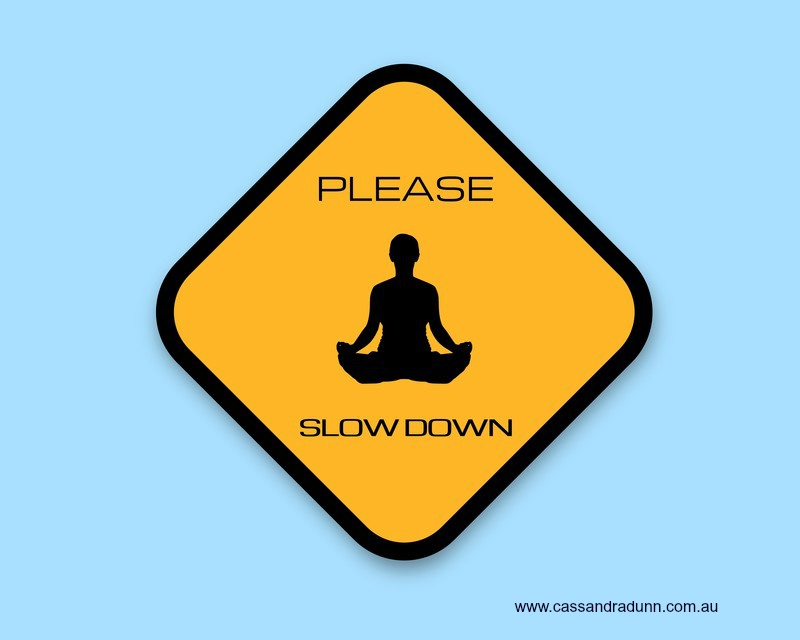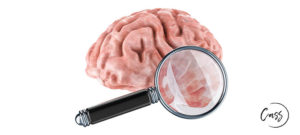
The ‘slow’ movement and why it’s gaining momentum

It’s a funny thing, really… that for all the advances in technology and the myriad wondrous inventions we’ve created to make things quicker, easier and more efficient, somehow we’ve come full circle and now find ourselves so overwhelmed by the busyness and sheer pace of life that we are all looking for ways to slow down.
Fast food, cheap fashion & social media are the signs of our times. They are relatively new concepts in our culture, and all serving the common purpose of providing instant gratification.
But the truth is that despite all the inventions designed to make life easier, the number of ‘friends’ just a button click away, the prosperity we enjoy and the abundant choices presented to us every time we hit the supermarket or the nearest shopping mall, we are experiencing our highest ever levels of anxiety, depression, obesity and debt.
Depression is in fact the leading cause of disability globally. Consumer debt is at an all time high. The planet is being destroyed. We are disconnected, isolated, and dissatisfied; working harder and longer, yet never being rewarded with the grand prize of happiness that we so long for.
And so it appears we have woken up to the con of ‘fast’.
Voluntary Simplicity. Downshifting. Minimalism. These are all terms used to describe a growing movement towards unhooking from our technology-addicted, consumption driven lives and finding five minutes of peace and quiet in the simple activities and lifestyles our grandparents might have enjoyed.
The slow food movement was born in Italy in the 1980s when Carlo Petrini and a group of activists objected to a McDonald’s being constructed on the Spanish steps of Rome. Fast food is a disaster for animals, the planet and our own health. Today, ‘slow food’ embraces the values of wholesome food, grown locally and sustainably, and offering a fair price and conditions to its producers. It is the antithesis of fast food and processed food. ‘Slow food’ values time taken to prepare and enjoy meals and the role of food in connecting family and friends. Most importantly, it’s a reminder to slow down in every aspect of our lives.
The slow living movement takes its cues from these same principles of mindfulness, connection and community.
Slow fashion for example, objects to the speed at which clothing designs move from catwalk to chain store, inviting us to reconsider our fashion purchases and opt for choices that will sustain us beyond a seasonal trend. Fast fashion pollutes the environment with its manufacture and its rapid disposal, and demands we keep spending money as seasons and styles change.
Where ‘fast fashion’ often utilises offshore labour with unfair working conditions, chemically laden textiles, and rapidly obsolete trends, slow fashion calls us to choose quality over quantity. It also emphasises getting back to basics and repairing or re-purposing pre-loved clothing. Big fashion houses are lining up to get themselves accredited with Ethical Clothing Australia. Thus, it would appear that consumer demand for high quality, ethically produced fashion exists, and that suppliers are happy to meet our demand.
Slow living invites us to unhook from the continual distraction of our screens and gadgets by taking a regular ‘digital detox’ and spending quality, purposeful time in our real lives and connecting with our people face to face.
With a quick Google search (the irony), you can find a multitude of manifestations of the slow movement: people living in tiny houses, embracing thrift and minimalism, and living in intentional communities. Blogs like Zen Habits and Becoming Minimalist have millions of subscribers, such is the level of interest in scaling back and slowing down.
Most of us will never truly escape the hustle of modern life with our gadgets and our shops and our busy jobs. But we can look for small ways to slow down, shed what is unnecessary from our homes and schedules, shop more ethically and choose more wisely in every respect.
What about you? How do you find ways to slow down?





